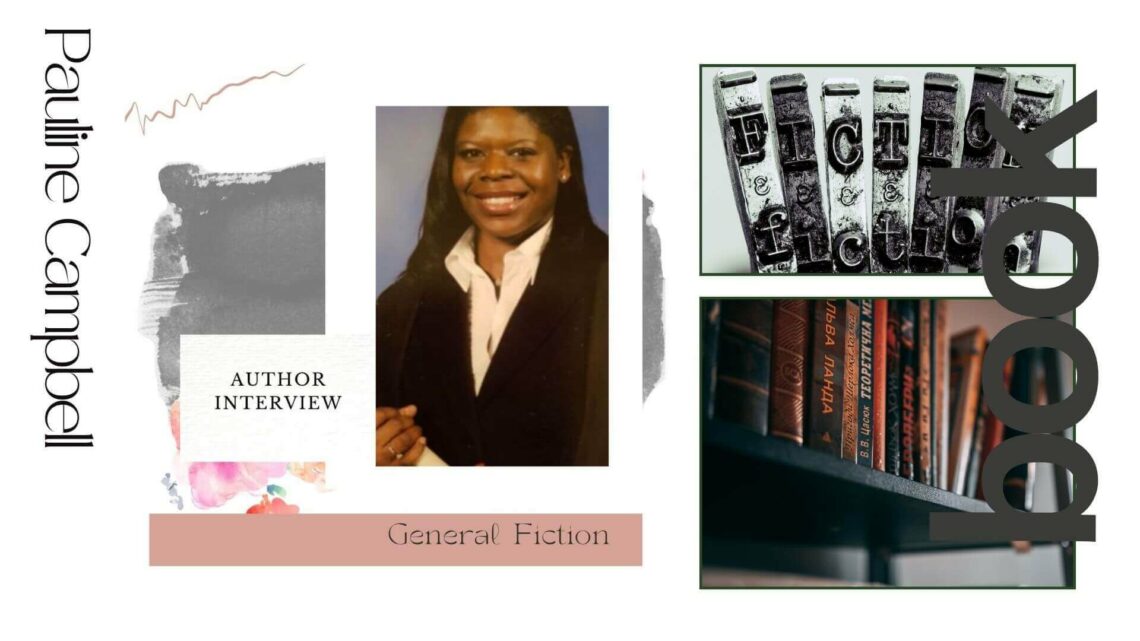
Interview With Pauline Campbell
Pauline Campbell didn’t just smash the glass ceiling, she smashed the glass walls too!
Female, black and over thirty, she set out against the odds to work in the legal profession and is now a highly respected award-winning lawyer, legal trainer and author. Her first book, the empowering racy romantic fiction novel Patsy and ‘The Touch’ of Templeton is out soon, telling the story of a woman very similar to Pauline herself, who isn’t grateful for her position in the legal world of white middle-class men because she has just as much right to be there as they do. Research shows that ethnic minorities have to send in 60% more CVs for legal roles than their white male counterparts, even when they have the same qualifications. But Pauline has always been determined to change the narrative and push boundaries, not just for herself, but for the good of society.
Pauline was born at Hackney Hospital and for the first ten years of her life lived on a street called Spring Hill. In Spring Hill Pauline and her family were the only black family on a street of Orthodox Jews: “We moved there when my sister and I were babies and my dad told us that the only reason they let a black family move onto that street was because there was a sitting tenant who was living downstairs in this lovely three-storey house and they thought that if they moved a black family in they would get this woman out because they wanted to sell the property.
But we were there for ten years and when we left, she was still there, and we were all such good friends and neighbours that we stayed in touch with her!” Remember’s Pauline. Pauline went to the local secondary school where she did well in her studies being part of all the top streams. But when she was about 13, Pauline’s sense of self altered, after her family sat down to watch the acclaimed 1977 TV series Roots, which tells the historical story of a Black African American family suffering through slavery. She said: “Roots freaked me out because it was my first real indication of what my ancestors went through, what slavery meant. It was daunting to me and I didn’t know what to do. It frightened the life out of me, but it also made me feel guilty because I realised that I was thankful I wasn’t a slave. But then the rot set in because it was the first time, I realised that I was different, and as I began to question my identity. My grades also began to suffer as a result.
My best friend was a white girl, We stayed friends long after leaving school, I went to her wedding, but unfortunately, we have now lost touch. As friends, we told each other everything and we were inseparable. I remember she had striking long blonde hair. But when Roots came on, I looked at Janice differently, I didn’t want to, but I kind of envied her, as I thought she was not going to have to deal with what I’m going to have to deal with, our lives will be different.” At this time Pauline also suffered some racist incidents, both at school and in public places: “When it’s white people who are older and they are telling you that you don’t belong here, even if you say, ‘how dare you’ it still hurts.”
By the end of school, Pauline was told that she was not A-Level material, and despite her family’s appeals for her to reconsider she decided to leave school. She said: “I just believed my teacher, because I’d never seen any black teachers, and all the judges, doctors and everyone I saw on TV were white.” Accepting what she saw as ‘her lot’ she enrolled at a further education college and achieved enough O- Levels to get an office job. But as the years went on, and after witnessing the Brixton Riots in 1981 and reading about the murder of Stephen Lawrence in 1993, Pauline started to realise that she needed to do something different. She said: “The Lawrences were really strong people and they wouldn’t give up to defend the rights of their son, and I realised that as black people you can’t afford to give up, you have to fight.”
So Pauline joined the union connected where she worked as a housing benefits officer and became the secretary for the black worker’s group. Pauline represented other workers at disciplinaries and helped them to draft letters: “I was good at it! I’d go into the room with these managers and wipe the floor with them, I was confident.” She said. Around this time one of Pauline’s friends paid for her to take part in acting workshops three evenings a week at the MountView Theatre School as a gift. Realising that she enjoyed treading the boards, learning lines, and doing comedy routines ensured that Pauline’s confidence soared. She said: “All of these things made me a whole person, they gave me back my mojo. I realised that I couldn’t do housing benefits forever, I was good at representing people and drafting letters, so I enrolled on a law degree!”
But of course, Pauline would have to pay for the degree, and with a mortgage to pay she knew that she would need to carry on working to support her studies. Picking the nearest university to her work, she made a deal with her boss that she could work more flexible hours, and for the length of the full-time course, travel between the two, between classes to ensure that she could study as well as pay the bills.
And the hard work paid off, Pauline graduated with a 2:1 and was soon on the way to establishing herself within the Legal profession. To do that she says she has had to overcome a level of prejudice, particularly as she came to law in her later thirties, as a black woman. She said: “I sent my CV to every single solicitor in the Yellow Pages and I got twenty responses back that I keep in a folder. But I said, ‘All I need is one yes.’ “And then I saw this lady in The Guardian, who had secured a trainee solicitors role within the Magistrates Court Service, and that the courts wanted trainees who had life and work experience, so I applied to Kent Magistrates. I got an interview! When I went to the interview I gave my presentation and they said ‘Why are you the person for this job’? I said, ‘Well I am unique and you are not going to get anyone else like me’ – I wasn’t saying that I’m better, but I am unique and could bring something new to their table, a diversity that they might not have, and I got the job!”
For the next 18 months of her career, Pauline travelled back and forwards from Tottenham to Kent running the magistrates court. “There was a bit of racism from some of the lawyers and the barristers, particularly from some of the Crown Prosecution Lawyers who were not pleasant, They would question my advice in open court. I had to make the decision, and I wasn’t going to cower down and just be meek. Making the bold decision to ask one of the lawyers to leave court, when my authority was being questioned. Some days I would take a deep breath to prepare myself mentally to walk into the courtroom. But for all the bad experiences there were also good ones too, which I am thankful for.”
Missing the diversity of living in London, Pauline left Kent the very day she qualified, and has practised successfully in two large local authorities as a solicitor ever since, specialising in criminal law prosecutions, civil law, Anti-Social Behaviour, and debt recovery. In 2016, heading a team of lawyers, Pauline won Litigation Team of the Year at the Lawyers in Local Government Awards, in the same year she was also runner-up to Legal Professional of the Year, and in 2017 she was shortlisted for Litigation Team of the Year at the Solicitors Journal Awards, and Lawyer of the Year at the Law Gazette Excellence Awards.
And the sky continues to be the limit for Pauline, who, with the release of Patsy and ‘The Touch’ of Templeton, hopes to inspire and normalise strong black women in professional settings. The book has already got a strong YouTube following, and a self-published release on Amazon has received rave reviews.
Speaking about her journey, her passion for writing and when asked whether she ever feels sad that life is harder for women of colour Pauline said: “I love old stories, I love black and white films, and I put aside that a lot of them are racist in the sense that the only time you see black people in these films is when they are cleaning up, I put that behind me and I look at the film for what it is because I realise those black people were strong and resilient and like the rest of us were just making a living to survive.
Being a black female lawyer in a white man’s world, because that’s what most lawyers are, I’ve had to look at them for what they are, rather than being in resentment mode. Because as a woman generally, whether I’m black or white it’s harder to read law. But as a black woman from Tottenham who didn’t qualify until she was 41 and has a cockney accent, it has been a bit of an uphill struggle.
“But the one thing I’ve learnt is that the majority of people I meet who are white are not racist, they are ignorant of our culture, we are ignorant of their culture, and once we come together there is a ‘coming together’ and that’s what writing the book has been about for me.”





